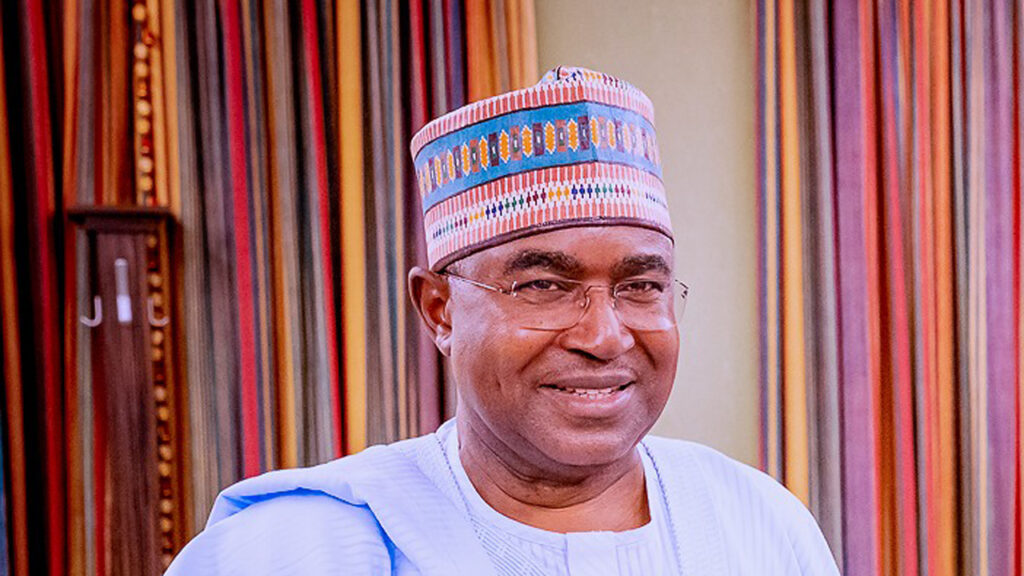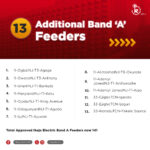 • Reduces tariff by N19 as DisCos implement directive
• Reduces tariff by N19 as DisCos implement directive
• GenCos’ capacity stalls at 3,883MW as DisCos offtake 3,705MW
The Nigerian Electricity Regulatory Commission (NERC), yesterday, reduced the tariff for Band A customers by N19, bringing the total end-user bills for about 1.5 million Nigerians to N206.80 Kilowatt per hour (KWh).
The review in April may have marked the take-off of the monthly review of the electricity charges.
While NERC had adopted a slightly higher exchange for the initial tariff increase, The Guardian learnt that the commission used N1227/$ for the current tariff computation.
The adopted foreign exchange rate is slightly lower than yesterday’s closing spot rate (₦1354.21/$).
The development has also transitioned the Nigerian Electricity Supply Industry (NESI) to a monthly tariff adjustment, following the prevailing economic trends, including the exchange rate.
This comes as the country’s electricity capacity hovers around 2,500 megawatts and 3.883MW, an indication that the improvement in the grid remained a critical challenge amidst the increase in tariff.
While there 20 generation were plants on the grid yesterday, hourly generation dropped to as low as 1,839 megawatts at some point. The total load uptake of the DisCos was 3,705MW yesterday.
NERC, in a release yesterday, said the revised tariff order covers the month of May and the eleven electricity distribution companies.
“The Commission has considered changes in the macroeconomic parameters over the preceding month of April 2024 and especially the appreciation of exchange rates – consequently the Commission has approved a downward review of end-user tariffs for Band ‘A’ customers from NGN225/kWh to NGN206.8/kWh,” NERC said.
Ikeja Electric, Kaduna DisCo, Abuja DisCo Ibadan Electricity Distribution Company (IBEDC) and other utility companies already announced the implementation of the reduction.
The Distribution companies (DisCos) mentioned that the tariff for Bands ‘B’, ‘C’, ‘D’ and ‘E’ remains unchanged.
The commission had earlier announced the hike for Band ‘A’ customers in April from N68/kWh to N225/ kWh, representing about 240 per cent increase.
IBEDC mentioned that prepaid meter users would experience the updated rate of the revised tariff of N206.80/Kwh when they top up in May, while post-paid customers will see the revised tariff reflected in their electricity bills at the end of May 2024.
According to Ikeja Electric’s Head of Corporate Communications, Kingsley Okotie, the implementation of the downward review of electricity tariffs is according to an order by NERC, noting that the move demonstrates the company’s commitment to providing affordable and accessible electricity to their customers.
Speaking on the inability to supply 20-24hrs and the apologies given in April, he said apologies arise only if they have a consistent shortfall for two days below 20hrs on a particular feeder. But on the average of a month cycle, they guarantee an average of 20 hours on the Band ‘A’ feeders.
“It’s a transparent process daily being monitored by the regulator situation room for strict compliance and I’m confident that we are on the right path to a sustainable supply across the board,” he said.
The downward review comes after the Trade Union Congress (TUC) and Nigeria Labour Congress (NLC) insisted on the two-week ultimatum they gave to the Federal Government to reverse the tariff. They emphasized that the epileptic power situation in the country affects economic growth.
Following Ikeja Electric’s recent implementation of the downward review of electricity tariffs from N225/kWh to N206.80/kWh, consumers across the nation are calling for further reductions to ease the financial burden on households and businesses.
According to different tweets by consumers, they said more downward review is expected from the initial N86/kWh to N100 or N120 KWh for more affordability, noting that N206 kWh is still high.
In response to the recent downward review of electricity tariffs, consumers are urging the government to shift its focus towards improving generation capacity and supply, rather than solely concentrating on tariff adjustments.
They emphasised that addressing the underlying issues of generation capacity and supply reliability is crucial to ensuring sustainable access to affordable electricity.
Speaking with The Guardian, a consumer, Ayodele Adedayo, argued that focusing on improving generation capacity and supply reliability will have a more significant and lasting impact on reducing electricity costs for consumers.
“We need the government to invest in improving generation capacity and infrastructure to ensure that we have enough electricity to meet the growing demand, a reliable and stable power supply will naturally lead to lower costs for consumers, without the need for constant tariff adjustments,” he said.
Adeolu Akinleye, another consumer said lower electricity tariffs would stimulate economic growth by reducing production costs and encouraging investment, noting that it would lead to increased consumer spending and drive economic activities which would in the end ultimately benefit the country.
He further urged other DisCos to consider further reductions in electricity tariffs to meet the demands of consumers as affordable electricity is crucial for economic development and improving the standard of living for Nigerians.
“We understand the need for DisCos to remain financially viable, but consumers also need relief from high electricity bills, there must be a balance between ensuring the financial health of DisCos and providing affordable electricity to consumers,” he said.
Another consumer, while reacting to the downward review, Ibrahim Olatoye, expressed dissatisfaction with the recent downward review of electricity tariffs, demanding further decreases in tariffs to reflect the economic realities of the country, noting that lower tariffs are essential to ensure that electricity is accessible and affordable to all Nigerians.
“We will continue to push for lower electricity tariffs until meaningful reductions are achieved, we deserve better as consumers and we will not stop advocating for our interests, our outcry on the previous hike would be a reason for this, hence, we won’t stop pushing for lower tariffs,” he expressed.
He mentioned that reducing the tariff further to 100kWh would still be reasonable for consumers given the inadequate supply. He added that the government shouldn’t solely focus on tariffs but rather on improving the country’s generation capacity and supply.
The All Electricity Consumers Protection Forum (AECPF), representing consumer interests, has insisted on taking legal action against NERC to nullify its tariff order.
The forum filed the suit in response to what it termed as unjustified tariff increases and discrepancies in billing practices, contending that the tariff order issued by NERC fails to adequately consider the economic realities faced by consumers and does not provide sufficient relief from high electricity bills.
The forum’s insistence on legal action reflects the growing frustration among consumers regarding the high cost of electricity in Nigeria.
The National Coordinator, AECPF, Adeola Samuel-Ilori stated that it’s well-established that one can’t build something on nothing. He argued that both the initial review by NERC and this subsequent downward review were illegal.
He mentioned that he doesn’t want to react extensively as they are already in court against NERC over the illegal minor review on April 3, which is the basis for this current situation. He emphasized the importance of avoiding the matter becoming subjudice, allowing the Federal High Court in Ibadan to address the inherent illegality.













